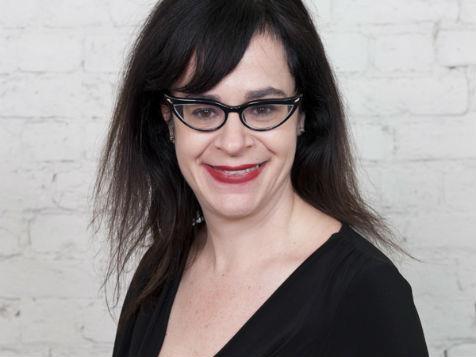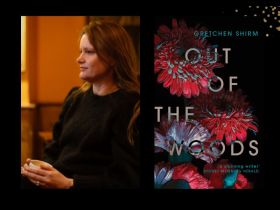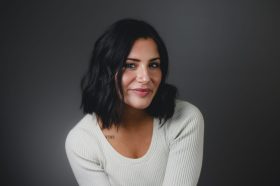Australian Copyright Council Executive Director Fiona Phillips. Image © Kylie Lyons 2012
While many artists may agree that Australian copyright law can often feel overwhelming, Australian Copyright Council (ACC) Executive Director Fiona Phillips said this doesn’t have to be the case.
‘One of the most rewarding things about this job is being able to provide practical help to people in the arts,’ she said.
The long running ACC national seminar program tour will do exactly that, when it opens in Melbourne on 5 May under the 2014 theme of Working with Copyright. It will then proceed to Brisbane in June, Perth in July, and Sydney and Adelaide in September.
Phillips said the seminars would provide insights and solutions into the issues that people are having at the coalface. ‘Copyright is a fairly complex area of the law,’ she said.
‘It’s about breaking it down so that it can be understood by members of the public,’ she said.
‘All our lawyers have an interest in the arts, which is an important twist. I have a visual arts degree as well as a law degree,’ said Phillips.
Among the presenters at this year’s ACC national seminar program will be Naomi Messenger, a senior lawyer with many years of private practice experience and a love of music, James Cheatley, an experienced copyright lawyer who holds a fine arts degree, and copyright lawyer and keen photographer Nathan Webster.

Copyright lawyer James Cheatley will present at the Australian Copyright Council national seminar program. Image © Fiona James 2014
‘As you can see they’re all lawyers but arts tragics as well. I’m personally involved with the Museum of Contemporary Arts in Sydney. It’s not just a theoretical thing,’ said Phillips.
The informative three-day national seminar program has been broken up into three different streams in order to target specific audience needs.
The first day, titled General Audience, has been tailored to members of the general public as well as copyright industry professionals, and will feature individual breakout sessions within the program.
For people who have no background in copyright whatsoever, ‘Copyright Essentials takes you through the basics of copyright,’ said Phillips.
Using Online Technologies will be introduced as a new course with insights into social media liabilities, digital rights management, and features real case studies where the law is still being tested.
Clearing Copyright Material Offline and Online will brief participants on licensing and clearances across varying digital formats and the ways in which to seek permission to use copyright protected material.
Phillips said that Hot Topics – New Copyright Cases and Policy Issues has been designed for lawyers and copyright professionals who want to stay up to date about current and emerging copyright law cases in Australia and internationally.
To feature within this seminar will be a discussion on the Australian Law Reform Commission report Copyright and the Digital Economy, which was produced over an 18-month period and tabled in Federal Parliament during February.
‘Because there are so many policy issues going on at the moment in copyright – both here and overseas – talking about how copyright should adapt to modern technologies is important’ she said.
‘We have tried to time that at the tail end of the day to make it easier for professionals to attend.’
The second day stream of the ACC national seminar program will be most relevant to libraries and cultural institutions.
Copyright Overview for Libraries will review general copyright principles, setting up a discussion about the specific provisions that apply to libraries.
Copyright Fundamentals for Libraries will feature both practical and theoretical models, with application to those working in all different kinds of galleries and libraries, from the public, private, government and educational sector.
Most relevant to schools and training institutions will be the third stream and final day of the seminar program, titled Educational Institutions.
During the first session of the morning, Educational Institutions: Using Images & Text will be facilitated as a Q&A session and provide important insights to teachers in the use of copyright protected material in the classroom.
Later in the day Education Institutions: Sound & Screen will focus on Screenrights and APRA, AMCOS and ARIA licensing, while Educational Institutions: Using New Technologies will use a workshop style format to examine digital copyright issues faced by teachers, librarians and IT staff working in schools.

Senior lawyer Naomi Messenger is among the panel of presenters to feature at the 2014 Australian Copyright Council national seminar program.
Phillips said that attendees to the seminars have been traditionally varied in past, which is why her team have worked hard to produce a program with wide appeal. ‘Digital technology makes it [copyright] an issue for everyone,’ she said.
‘In an analogue world, it was only really industry who had to deal with copyright issues. You bought a book or an LP and there were no copyright issues with what you wanted to do.’
‘People want to know how to protect their own rights, but also how to do the right thing by other people by putting sensible practices in place,’ she said.
Founded in 1968, the ACC trades as a not-for-profit organisation partly funded by Australia Council, and represents the peak bodies for artists and companies working in the Australian creative industry sector.
Beyond the national seminar series, the ACC operates a range of advocacy and information services, a biennial conference, and material published online and in print formats.
Phillips said that ACC are recognised as leaders in the field of copyright law education ‘We’re not only interested in giving expert legal opinion, we’re able to break that down into practical tips about to how to go about approaching these issues,’ she said.
For a detailed program outline, visit the Australian Copyright Council website for more information about the Working with Copyright seminars.





